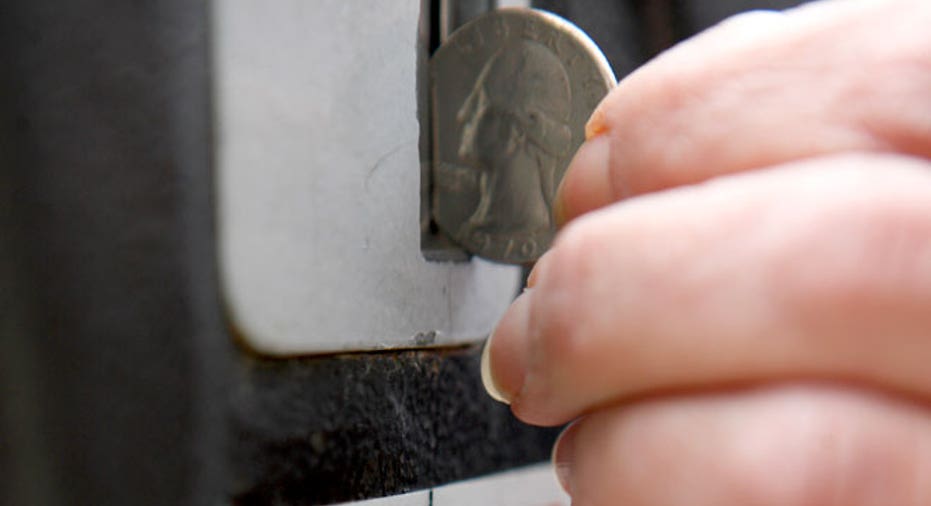Pain in the Lot: Curb Costly Parking Fees

Parking costs are on the rise across the U.S. from beaches in Rhode Island to airports in Hawaii. At the same time, high unemployment rates and economic stagnation have forced more people to adopt frugal living habits. Together, these trends mean saving money on vehicle parking fees is, for many, in vogue and a necessity.
Whether they use parking meters or parking lots, hospitals, colleges, sports stadiums, shopping malls, office buildings and even public transit stops are jacking up their rates, sometimes by substantial percentages, judging from online news reports. In particular, municipal parking lots are prone to rate increases as city governments grapple with reduced revenues and political difficulties in raising taxes.
Hikes in parking fees are sometimes sold to the public as a benefit, the argument being that pricier parking encourages turnover and opens up spaces for people who want to park. That may be true, but it's a bitter pill for drivers facing those fatter parking rates.
Parking in major U.S. employment centers is downright cheap compared with costs in such foreign cities as Sydney, London, Tokyo, Vienna and Amsterdam. Parking fees at prime garages in these cities could top $50 per day, according to a June 2011 survey of 156 central business districts' parking rates by Colliers International, a commercial real estate company in Seattle.
But drivers in some U.S. financial districts pay steep parking fees as well. The Colliers survey found the national average for daily rates is $16.12. Parking fees in larger cities ranged from $41 in New York-midtown to $32 in Chicago and $26 in San Diego and San Francisco. Second-tier cities have business-district daily parking rates of $10 to $25, according to the study. See the top 10 most expensive cities for parking fees in Bankrate's feature, "10 cities with the highest parking fees."
Search for Free Parking
The most obvious alternatives to paying for a parking space include walking, riding a bicycle or even skateboarding from point A to point B, though all of those options involve more time and effort to get to one's destination. Driving around in search of cheaper parking fees also entails a trade-off of time and fuel.
Kathy Virgallito, regional director of partnerships at Apprisen Financial Advocates, a consumer credit counseling service in Columbus, Ohio, says parking farther away and walking to a destination is not only good exercise but saves money. "The furthest spots are typically the cheapest," she says.
Virgallito gives these additional ways to save on parking rates.
Carpool with a friend or co-worker, and split or share the parking fees. "Many companies have a ride-sharing bulletin board that helps people find like-minded co-workers who live near them," she says.
Create a personal park-and-ride system. Meet a co-worker in a safe location such as a public parking lot, travel together from that point onward and divvy up the parking cost. When choosing a meet-up lot, be sure to check for towing signs.
Take advantage of parking lot early-bird discounts. "Many downtown offices start work at 9 a.m.," Virgallito says. "Start your day at 8, and you can avoid the rush hour and get an optimal spot for less or even free."
Purchase a monthly or annual parking pass. Buying bulk parking privileges is usually cheaper than multiple one-day rates.
Use park-and-ride lots. These services offer free or discounted parking, plus a nominal fee to ride a bus directly to the destination. Park-and-ride is usually cheaper than on-site parking.
Avoid parking tickets. No-parking signs can be difficult to decipher, so read the restrictions carefully and if they're not clear, don't take the risk. One ticket can be much more expensive than parking fees. On the other hand, don't overlook the opportunity to park where seemingly complicated restrictions have deterred other drivers.
"It may seem obvious but if you're using street parking, make sure to read the signs and pay attention to the maximum times posted," Virgallito says.
Free Parking Benefits
Gail Cunningham, a spokeswoman at the National Foundation for Credit Counseling in Washington, D.C., suggests one way to cut office parking expenses to zero: Ask your employer to pay for your parking.
"You'd be surprised by how much is lost for a lack of asking," Cunningham says. "Companies may be willing to add this perk in order to keep a key employee."
If that doesn't work, here are some other suggestions from Cunningham.
Use public transportation. Some companies reimburse all or part of employees' bus fares, subway trips and the like to and from a work site to discourage solo commuters who take up more parking spaces at greater cost to the company.
Leave one car at home. "If your spouse works close by, just take one car to work, thus cutting parking costs in half," Cunningham says.
Work at home. Even a few days of telecommunicating per week can reduce transportation and parking costs.
One last tip: If you know you'll be parking at a crowded venue such as an airport, museum or sports stadium, search online ahead of time to find out whether cheaper parking is available nearby. Many venues offer information about parking on their websites. You also can use a search engine. Try "free parking near" or "cheap parking near" and the name or address of your destination to find more options.



















